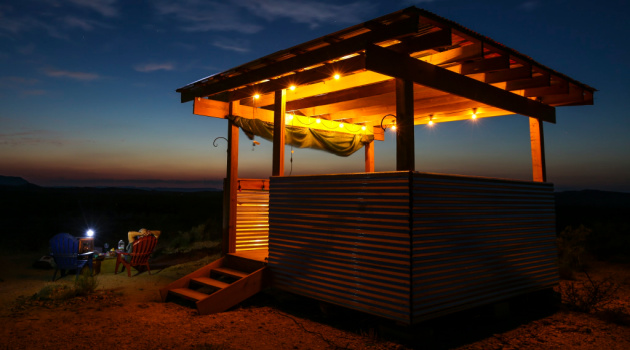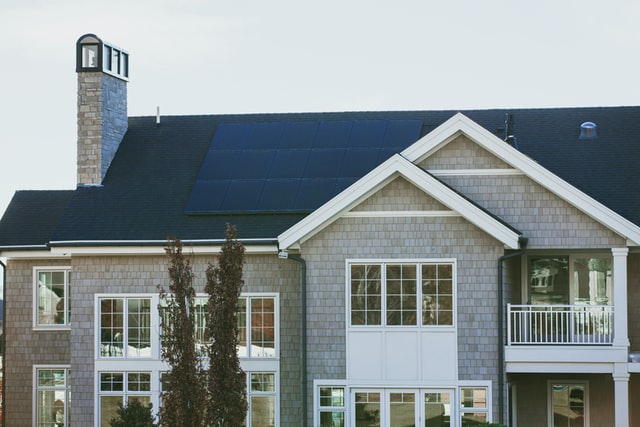Solar power has been a viable option for homeowners for a long time now. Prices have come down tremendously. Thus, it is becoming more accessible for people of regular means. In fact, it’s become so attractive that it’s now somewhat of a no-brainer. Everyone should be doing it. Here’s why you should consider solar panels.
6 Excellent Reasons to Install Solar Panels at Your House
Consider these compelling arguments for this clean energy source.
1 – It Lets You Go Off-Grid
Do you want to take your home off-grid? If so, then going solar is arguably among the best ways of doing it.
Let’s face it: nobody wants to pay utility bills. They’re one of those annoying monthly expenses that really take a toll on your long-term finances. Just think about the amount of energy that you use in the course of a regular day. It’s tremendous.
Solar, however, generates all of that lovely electricity you need for free. And what’s more, it makes your home more eco-friendly at the same time.
 2 – Solar Power Creates Jobs
2 – Solar Power Creates Jobs
This energy source is also a massive growth industry right now. The sector provides jobs for hundreds of thousands of people with manual skills who would have had to find employment in low-skill service jobs instead. This transition of workers into the sector leads to improved economic prospects for communities and greater strength of the local economy.
Thus, when you buy solar panels, you’re actually contributing to the people who need them the most. So not only is buying solar compelling from a personal viewpoint, but it also helps the rest of the community.
3 – It Enhances Grid Security
Centralized electricity generation is cost-effective (at least under the old paradigm). But it is also insecure. Power outages can sometimes last for weeks, depriving people of all the technology and electrical appliances they rely on others to survive.
Solar, however, offers a solution to this problem. For starters, it provides individual homeowners with the energy they need in a power outage event. Plus, it allows them to sell what they don’t want to other people connected to the grid. Prices could reflect the supply and demand for electricity, incentivizing people to use it sparingly and sell any excess they might have.
4 – You Can Get Tax Back When You Install Solar Panels
Thanks to solar tax credits for homeowners, you can actually substantially reduce your tax bill for the year.
A tax credit works a little differently from an expense. The credit essentially applies to your tax balance with the authorities, depending on how much money you spend on a solar panel installation. Currently, the percentage tax credit is 26%. So if you spend $20,000 on a solar panel installation, you could get a $5,200 deduction from your federal tax bill – that’s a huge amount!
5 – It Reduces Electricity Loss
Did you know that only about twenty percent of the energy released from burning coal actually makes its way to businesses and homes in the form of electricity? One of the reasons for this is so-called “electricity loss” as it travels along pylons. The longer the distance between the power station and your home, the more electrical energy is lost as heat and noise to the environment – not what we want.
However, when you choose solar, you essentially eliminate this problem. Panels are close by on your property, so electricity loss in wires is negligible. What’s more, because it is sustainable, efficiency is no longer a serious environmental concern.
6 – It Allows You To Protect The Environment And Your Lifestyle
Many people want to take society back to the middle ages, where everyone lived off the land. But is that really feasible? Unlikely. The best approach is to find technologies that allow humanity to have its cake and eat it. The sun provides around 10,000 times more energy than the whole of human civilization uses. It’s just a question of harnessing a tiny fraction of it for our requirements.
And the best way to do that? You guessed it: install solar panels.
 Wrapping Up: Consider Solar Panels for Your Home
Wrapping Up: Consider Solar Panels for Your Home
Solar power is currently massively underutilized. That’s because the economic incentives to take advantage of it are still evolving. Many power companies made massive investments in fossil fuel plants in the past. And so, they are still trying to recoup their capital costs. But that situation won’t last forever. Even now, virtually all new electrical generation supply coming online every year is renewable. As prices come down, that process is likely to accelerate.
Consumers are also taking matters into their own hands. Homes are becoming cottage industries once more. Not only are people working from home, but they’re also finding ways to make their properties more self-sufficient.

